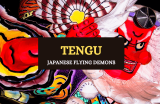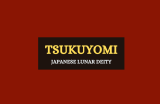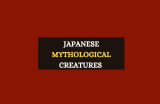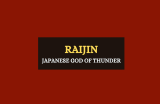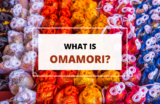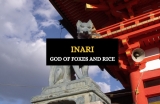Just like Zeus and Hera in Greek mythology, Odin and Frigg in Norse myths, and Osiris and Isis in Egypt, Izanagi and Izanami are the Father and Mother ...
In Japan, also known as The Land of the Rising Sun, the Sun Goddess Amaterasu is regarded as the Supreme Deity in Shintoism. Viewed as the mother of the ...
Japanese history and mythology are full of amazing weapons. Spears and bows were favored by many mysterious Shinto and Buddhist deities as well as many ...
The oni are often viewed as Japanese demons or evil spirits, or even goblins, trolls, or ogres. These beings are depicted with blue, red, or green face ...
The Tengu are flying bird-like humanoid yokai (spirits) join Japanese mythology as just minor nuisances. However, they evolved in parallel with Japanese ...
The Shinto kami god Tsukuyomi, also called Tsukuyomi-no-Mikoto, is one of the very few male moon deities in the world. Some of the other male moon gods ...
Traditional Japanese mythology and Shintoism in particular, are home to many unique creatures, spirits, demons, and other supernatural beings. Kami (gods) ...
In Japanese mythology, Raijin, the god of thunder, is unique in many ways. While most gods of thunder and storm in other religions and mythologies such as ...
Omamori is Japanese amulets sold at Buddhist temples and Shinto shrines across the country. These colorful little purse-like objects are made of silk and ...
When reading about Shintoism, there’s one deity whose names you’ll see over and over again – Inari Ōkami, Ō-Inari, or just Inari. This kami (deity, spirit) ...






